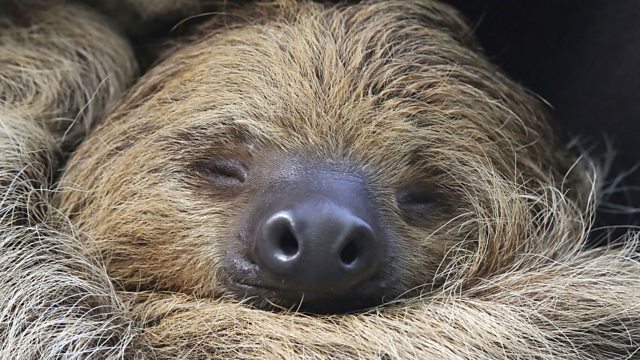
What Does Rest Mean to You?
This week a big global survey on rest was launched. As part of a collaboration between the ΒιΆΉΤΌΕΔ and Hubbub, Hubbub has created the Rest Test to get a snapshot of resting habits.
A major global survey on rest has been launched. Dr Felicity Callard from Durham University is the director of Hubbub, a group of people including Claudia Hammond, who come from disciplines as diverse as neuroscience, poetry and art. They are in residence at the Wellcome Collection in London, studying the topic of rest and what we do when we rest.
As part of a collaboration between the ΒιΆΉΤΌΕΔ and Hubbub, the Rest Test is designed to get a snapshot of the worldβs resting habits. The survey is online and in order to fully understand rest, the scientists and artists on the project need you to take part. With the help of ΒιΆΉΤΌΕΔ listeners we hope this will be the worldβs largest ever investigation into the topic of rest. And, as well as the detailed results which we will feature on the World Service in 2016, if you take the Rest Test, you get immediate feedback about what everyone else is saying about rest as soon as you finish the survey. To take part, click the link to the Rest Test on the right hand side of the Science Hour page.
Parasitic Worms
ΒιΆΉΤΌΕΔ Health News Website editor, James Gallagher, reports on two remarkable stories involving parasitic worms.
In the first case, non-human cancerous cells were discovered in the body of a 41 year old Columbian man who had HIV. Scientists were amazed when a molecular test revealed high levels of tapeworm DNA and international experts identified cancerous parasitic worm tissue growing in his organs.
The patient died, in Medellin, three days after the worm DNA was discovered.
In the second case, a man from California is recovering after he had a live tapeworm removed from his brain during emergency surgery. The neurosurgeon who discovered the larva of the tapeworm told Luis Ortiz that he had about thirty minutes to live.
Worst SE Asian Haze for 20 Years
The annual devastating and deadly haze across South-East Asia caused by smoke from forest and peatland fires has been the strongest for the past 20 years. These fires are deliberately started to clear land for plantations and the haze they cause spread to Singapore, Malaysia, Thailand and The Philippines, causing an environmental and health disaster. Susan Minnemayer from the World Resources Institute explains why the haze is so much worse than other years.
Genetic editing
The first person in the world to receive a pioneering genetic therapy has had her cancer reversed at Londonβs Great Ormond Street Hospital. One-year-old Layla Richards had incurable aggressive leukaemia and doctors used "designer immune cells" to fight the cancer. They say her improvement is "almost a miracle" and ΒιΆΉΤΌΕΔ Health News website editor, James Gallagher, tells Claudia that although it is too soon to know if she has been cured, her progress marks an important advance in gene editing.
How to make an awesome surf wave?
Can we make better surfing waves than the wild ocean, asks marine biologist and writer Helen Scales. Helen loves surfing but she describes it as an extreme form of delayed gratification, especially around the British coast, because nature does not make great surfing waves to order. So she goes in search of short cuts: aquatic engineering to make better βbreaksβ. She reports from the Basque Country in northern Spain where she has the most exciting surf ride of her life in a man-made lagoon, the Wavegarden, in the foothills of the Cantabrian mountains, kilometres from the ocean. Over the last decade a company formed of surfing engineers has invented a machine which summons up two sizes of perfect surf waves every minute and Helen gets up on her board to test it out.
Human Rights and Cyber Security
Front Line Defenders hosted a meeting in Dublin of human rights campaigners and activists who are all at risk because of their work. Gareth Mitchell asks what the digital risks are for activists and talks to Polish information security consultant, Wojtek Bogusz, a speaker at the gathering, about cyber security strategies.
How your brain shapes your life
It weighs 3lbs, takes 25 years to reach maturity and, unique to bits of our bodies, damage to your brain is likely to change who you are. Neuroscientist David Eagleman's new book, The Brain: The Story of You, explores the field of brain research. New technology is providing a flood of data. But what we don't have, according to Eagleman, is the theoretical scaffolding on which to hang this. Why do brains sleep and dream? What is intelligence? What is consciousness? He gives Tracey Logan some answers.
The Science Hour was presented by Claudia Hammond with comments from ΒιΆΉΤΌΕΔ Science Correspondent James Gallagher.
Producer: Fiona Hill
(Photo: Sloth at rest. Credit: Thinkstock)
Last on
More episodes
Previous
Broadcasts
- Sat 7 Nov 2015 09:06GMTΒιΆΉΤΌΕΔ World Service Australasia
- Sat 7 Nov 2015 23:06GMTΒιΆΉΤΌΕΔ World Service
- Sun 8 Nov 2015 02:06GMTΒιΆΉΤΌΕΔ World Service Australasia
- Sun 8 Nov 2015 11:06GMTΒιΆΉΤΌΕΔ World Service Online
- Sun 8 Nov 2015 14:06GMTΒιΆΉΤΌΕΔ World Service Australasia
- Mon 9 Nov 2015 06:06GMTΒιΆΉΤΌΕΔ World Service South Asia
Podcast
-
![]()
Unexpected Elements
The news you know, the science you don't

